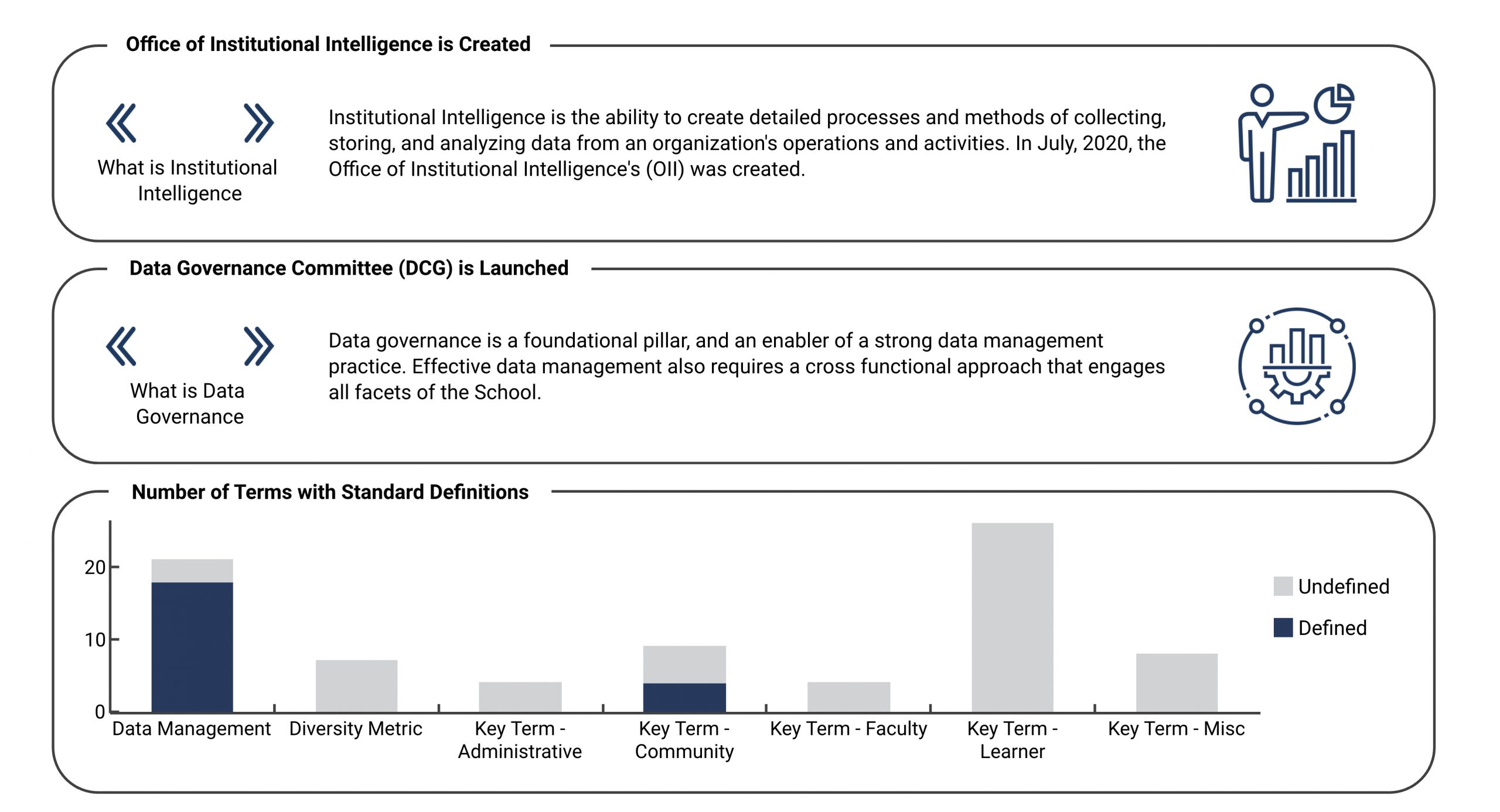Big data is key to identifying strategic opportunities for health care in Northern Ontario

Big Data is a tool increasingly used to link structured, partially structured and unstructured information collected by a diverse group of units to assist with measuring success, developing metrics of performance and predictive modeling for analytic policymaking. The goal of the new Office of Institutional Intelligence (OII) is a transformative innovation designed to lead NOSM in this realm.
Our world is moving rapidly and NOSM University will be poised to use big data to interpret and rive transformation in the complex systems of health education, health services and research in Northern Ontario. For example, there is huge variability in our data about the needs for physicians and other health professionals. Ensuring the reliability of data, managing the volume of data and the velocity of change is a challenge NOSM has undertaken through the OII.
NOSM is taking a dynamic next step to house its own big-data sets. Until now, the School has worked closely with the Centre for Rural and Northern Health Research (CRaNHR), formerly known as the Northern Health Human Resource Research Unit, founded in 1992 by Lakehead University and Laurentian University. CRaNHR was developed to examine health human resource issues in the North.
“It’s not simply data for NOSM’s internal reference. This information will have a system-wide impact on upcoming and future policy-level decisions happening at the provincial level,” says Dr. Sarita Verma, Dean, President and CEO of NOSM.
Until now, some NOSM data has been housed internally by administration to chart the School’s progress. Fast forward to 2021 amidst the global pandemic and housing big-data sets are critical to monitor the effectiveness of system-wide health care policy and health human resources across Northern Ontario. It is also the next step toward maturity as a socially accountable medical school.
“Increasing data transparency and more effectively communicating through the use of data will help NOSM showcase its strengths, identify opportunities and make improvements that will add value to Northern communities,” says Mathieu Litalien, Director of NOSM’s OII.
Data governance includes setting standards, facilitating access and use of data through discussion and collaboration, establishing data ownership and authority, according to the School’s Data Governance Committee, first established in 2020.
The Committee is in its third quarter of development—currently assessing the results of environmental surveys and semi-structured interviews that were conducted to better understand NOSM’s current data culture. The OII will then lead the school’s data strategy, communicate and share the leading data that will shape improvements and identify any gaps in the system.
By internally housing the tools and initiatives necessary, NOSM is also well positioned as a seamless, reliable, non-partisan data source for Northern Ontario, elevating the School’s role and furthering its social accountability mandate.

